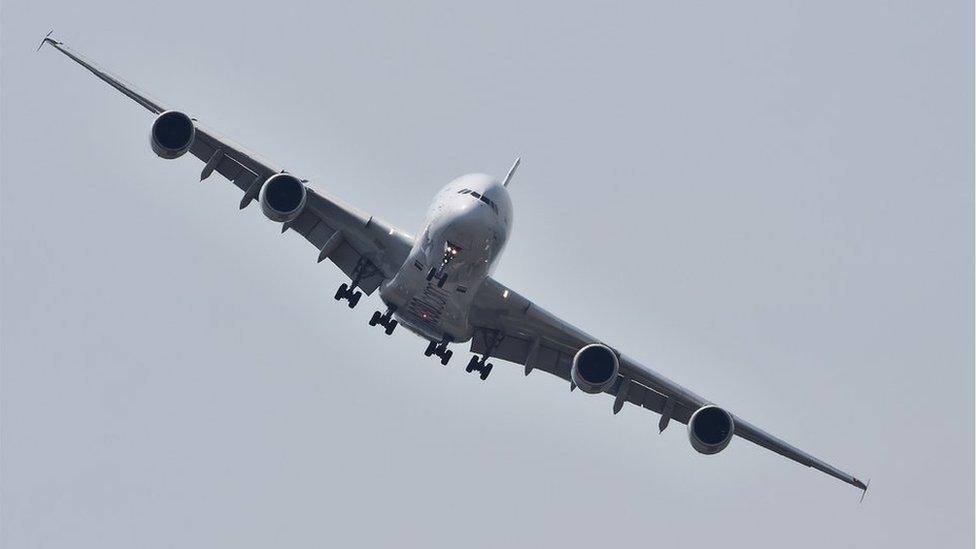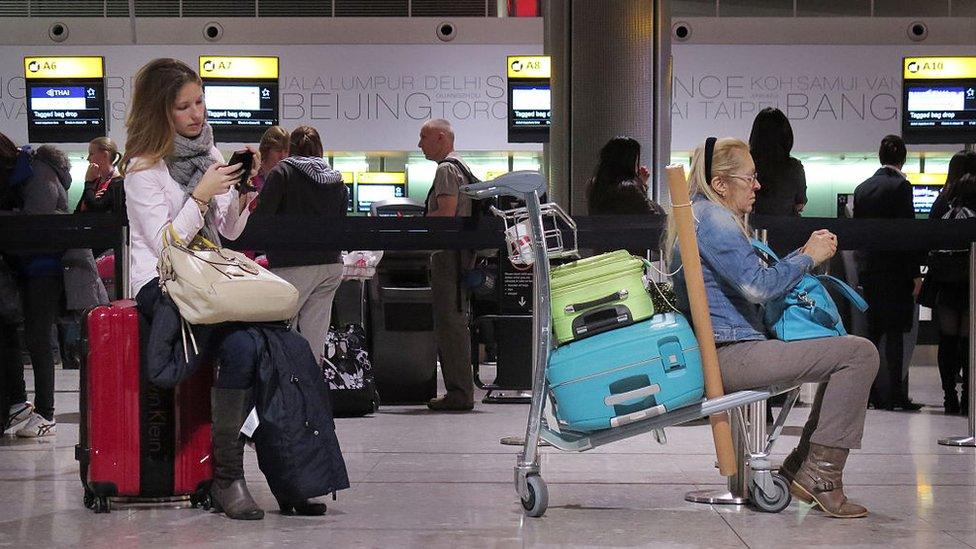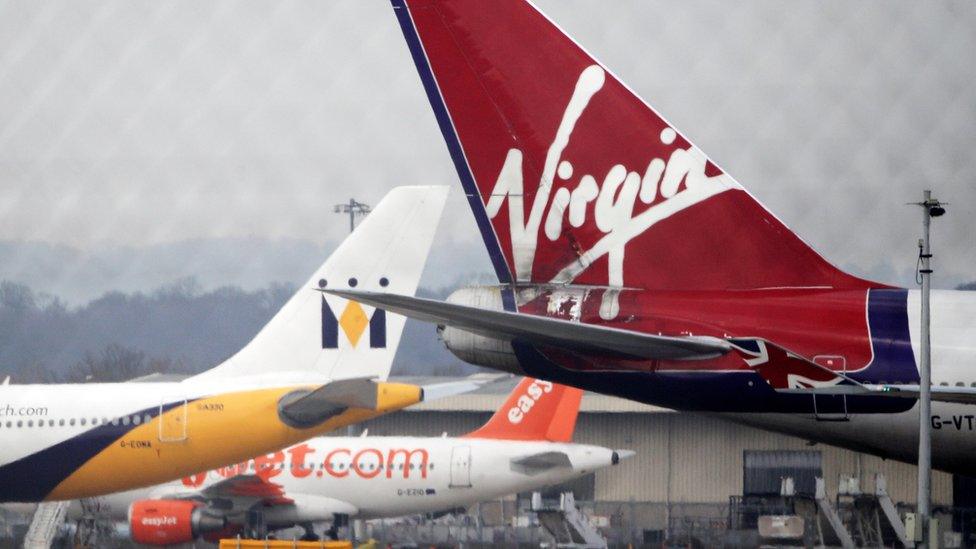Aerospace body: UK should stay in EU during transition
- Published

The UK must remain an EU member during a transition period from March 2019, according to the head of aerospace body ADS, external.
Paul Everitt said the UK would struggle to sign the necessary agreements with global safety regulators before then, risking disruption to air travel.
The government has indicated an "implementation period" may be needed to avoid an abrupt exit from the EU.
But it has yet to outline what that could involve.
Mr Everitt, chief executive of ADS, told BBC Newsnight: "When we cease to be an EU member we need to have in place a whole new set of international agreements with, for instance, countries like the US, with Canada and emerging major markets like China, India, Japan.
"So for us the transition period is important and it's important that during that period we remain an EU member."

Such agreements are needed, he said, even if the UK chooses to remain a part of the European Aviation Safety Agency (EASA), which has largely replaced domestic air safety regimes in EU member states over the past 15 years.
Mr Everitt added that ADS was not aware that the UK government had started "detailed work" on these relationships. He said leaving the EU without these in place would mean "chaos, because we don't have a system to ensure that our products are safe and secure to fly".
Safety briefing
EASA certifies aircraft for use, oversees approved aviation and maintenance operations, and develops regulations for the entire sector.
The aerospace industry, which employs about 120,000 people in the UK and generates about £28 billion worth of exports, is keen to avoid regulatory divergence which would require double certification of aircraft parts and components.
"We are very clear that we wish to remain a member of the European Aviation Safety Agency," said Mr Everitt. "And we don't believe that there is a viable alternative that can be up and running in a reasonable period of time."

Ryanair boss Michael O'Leary says time to reach on deal on air travel
ADS represents the aerospace, defence, security and space sectors. It estimates that it could take five to 10 years, and an extra 300 staff, to equip the UK's Civil Aviation Authority to take over EASA's responsibilities.
Remaining part of EASA could prove controversial. The UK would likely be required to make financial contributions to the agency, as well subjecting the UK's safety regime to European oversight, ultimately by the European Court of Justice.
Some countries outside the EU, like Norway and Switzerland, have associate membership of EASA.
But these countries, said Mr Everitt, have bilateral agreements with the US and others which provide "the meshing of both the regulatory regime and the international relationships. That's what we need to have."
"It's really about providing our international colleagues, particularly the US, with confidence that the new regulatory regime that we are going to operate is capable of meeting the high safety and security standards that they require.
"The challenge is we don't know what that is going to look like," he added.

Aviation experts told Newsnight that the work required to sign such agreements should not be technically complex, provided the UK is committed to remaining aligned with EASA rules.
But it could still take an estimated 18 months to get the required paperwork in place before the UK's departure from the EU.
Flight path
In a speech in June, external the head of the US Federal Aviation Authority, Michael Huerta, said it had started discussions with the UK government about "various scenarios" around Brexit. But he added that those discussions were "complicated and time-consuming by their very nature".
He warned: "It is important to keep these time constraints in mind, and to not get sidetracked into a uncomfortable situation in which a missed deadline results in an interruption of service."
The questions about safety regulation after Brexit are the latest to hit the aviation industry.
Michael O'Leary, the boss of Ryanair, has repeatedly warned that the UK is running out of time to agree a new Open Skies agreement with the EU, which allows airlines to fly freely.
Airlines sell seats up to a year in advance and Mr O'Leary has said there is a "real prospect", external that there will be no flights between the UK and Europe for a period beyond March 2019.
Other airlines, however, believe both UK and European governments are highly motivated to sign a new air traffic agreement given the possible disruption and the mutual benefits of trade and tourism.

Discussions are "complicated and time-consuming" says the head of the FAA Michael Huerta
Air safety is, if anything, more complicated because it involves regulators beyond the 27 European Union countries.
"It's not impossible for the government to allocate sufficient resources and for our European partners and worldwide partners to get up to speed. But I have to say to date… that level of urgency does not appear to be around," said Mr Everitt.
"If we don't have a transition arrangement and if we aren't a member of the EU as part of that transitional arrangement, then we have chaos because we don't have a system to ensure that our products are safe and secure to fly and a regime that is acknowledged around the world," he added.
A government spokesman said: "Aviation is absolutely crucial to the UK's economy and we are committed to getting the best deal possible for Britain. We will work closely with the international aviation community to ensure that this global industry continues to be a major success story for the UK economy."